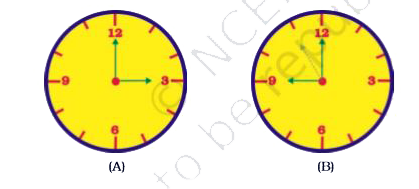In summer, the clocks
become slow
become fast
gives correct time
lose time
The correct Answer is:A
Step-by-Step Solution:
1. Understanding the Pendulum: A pendulum clock measures time based on the oscillation of a pendulum. The time period (T) of a pendulum is given by the formula:
T=2π√Lg
where L is the length of the pendulum and g is the acceleration due to gravity.
2. Effect of Temperature on Length: In summer, temperatures are higher. Most materials expand when heated, which means the length L of the pendulum will increase due to thermal expansion.
3. Impact on Time Period: Since the length L increases, we can analyze how this affects the time period T. As L increases, the time period T also increases because they are directly proportional in the formula.
4. Conclusion on Clock Behavior: An increase in the time period means that the pendulum takes longer to complete one full oscillation. Therefore, the clock will run slower because it takes more time to register each tick.
5. Final Statement: Thus, in summer, due to the increase in temperature and the consequent increase in the length of the pendulum, the clocks become slow.
Final Answer: In summer, the clocks become slow.
---
T=2π√Lg
where L is the length of the pendulum and g is the acceleration due to gravity.
Topper's Solved these Questions
- HEATBOOK - MCGROW HILL PUBLICATIONCHAPTER - HEATEXERCISE - HIGHER ORDER THINKING QUESTIONS
15 Videos
- GRAVITATION BOOK - MCGROW HILL PUBLICATIONCHAPTER - GRAVITATION EXERCISE - HIGHER ORDER THINKING QUESTIONS
25 Videos
- HEATING AND MAGNETIC EFFECTS OF CURRENT BOOK - MCGROW HILL PUBLICATIONCHAPTER - HEATING AND MAGNETIC EFFECTS OF CURRENT EXERCISE - HIGHER ORDER THINKING QUESTIONS
34 Videos
Similar Questions
Define linear simple harmonic motion. Assuming the expression for displacement of a particle starting from extreme position, explain graphically the varition of velocity and acceleration w.r.t. time.
A clock reagulated by seconds pendulum, keeps correct time. During summer, length of pendulum increases to 1.005 m. How much will the clock gain or loose in one day (g=9.8m/s2andπ=3.142).
View SolutionBuying Round the clock is possible at:
View Solution
Knowledge Check
Air fills a rooms in winter at 7∘C and in summer st 37∘C. If the pressure is the same in winter and summer, the ratio of the weight of the air filled in winter and that in summer is.
A2.2B1.75C1.1D3.3In summer the mirages are seen due to the phenomenon of
Areflection of lightBtotal internal reflectionCinterference of lightDdiffraction of lightDuring summer, the time period of the pendulum of a clock changes to 2.02 s from 2 s. The clock runs
Aslow by 14.4 minutes per dayBfast by 14.4 minutes per dayCslow by 28.8 minutes per dayDfast by 28.8 minutes per day
Two clocks A and B are shown in Figure 13.1. Clock A has an hour and a minute hand, whereas clock B has an hour hand, minute hand as well as a second hand. Which of the following statement is correct for these clocks?

View SolutionA wall clock uses a vertical spring mass system to measure the time. Each time the mass reaches an extrem position, the clock advances by a second. The clock gives correct time at the equator. If the clock is taken to the poles it will
View SolutionA pendulum clock shows correct time at 0∘C. At a higher temperature the clock.
View SolutionIn summer, we prefer to wear
View SolutionAn accurate clock shows 8 O' clock in the morning. Through how many degrees will the hour hand rotate when the clock shows 2 O' clock in the afternoon ?
View Solution
